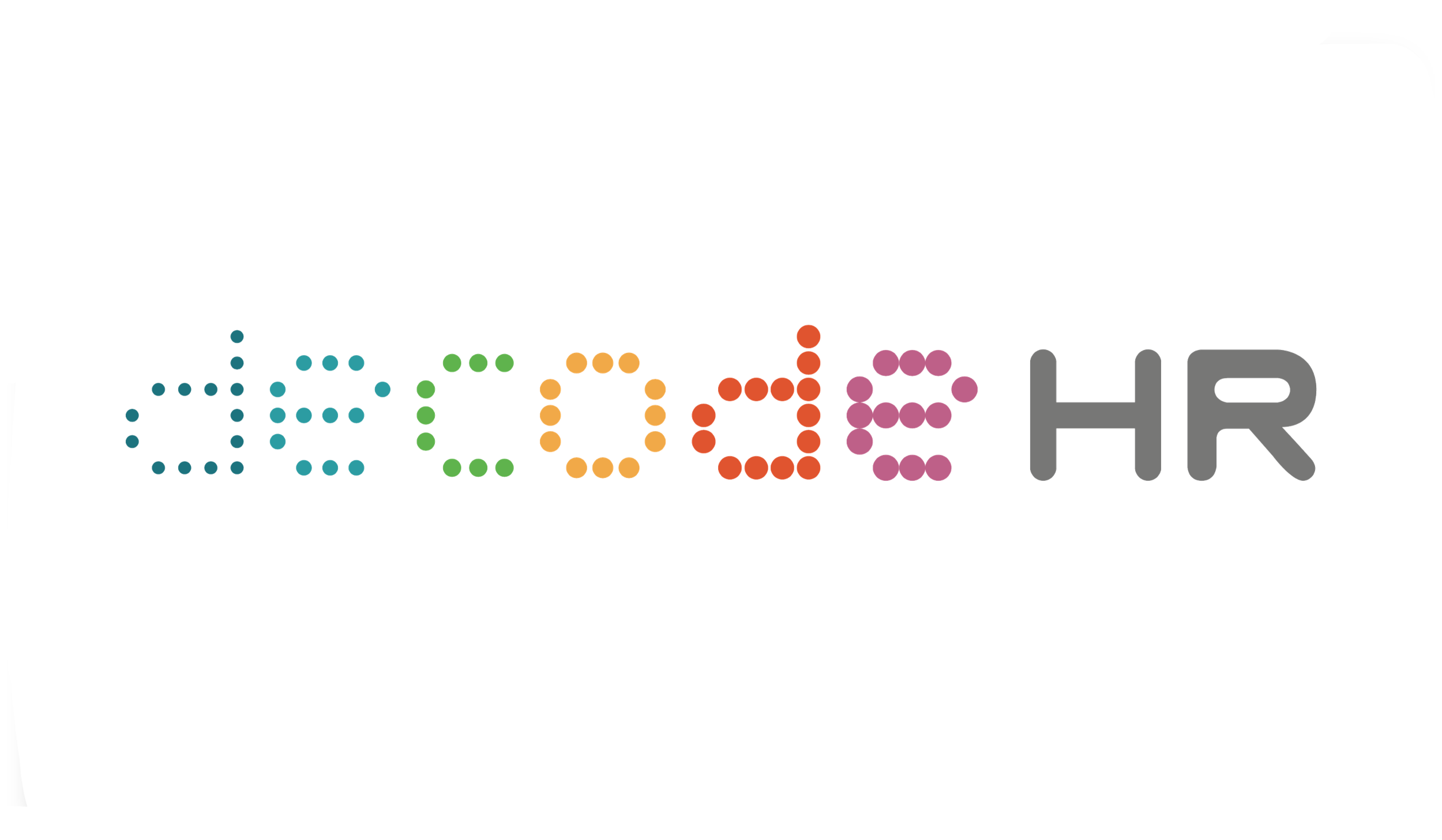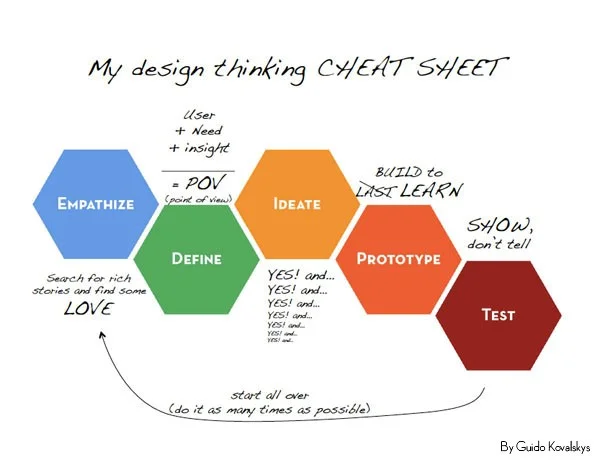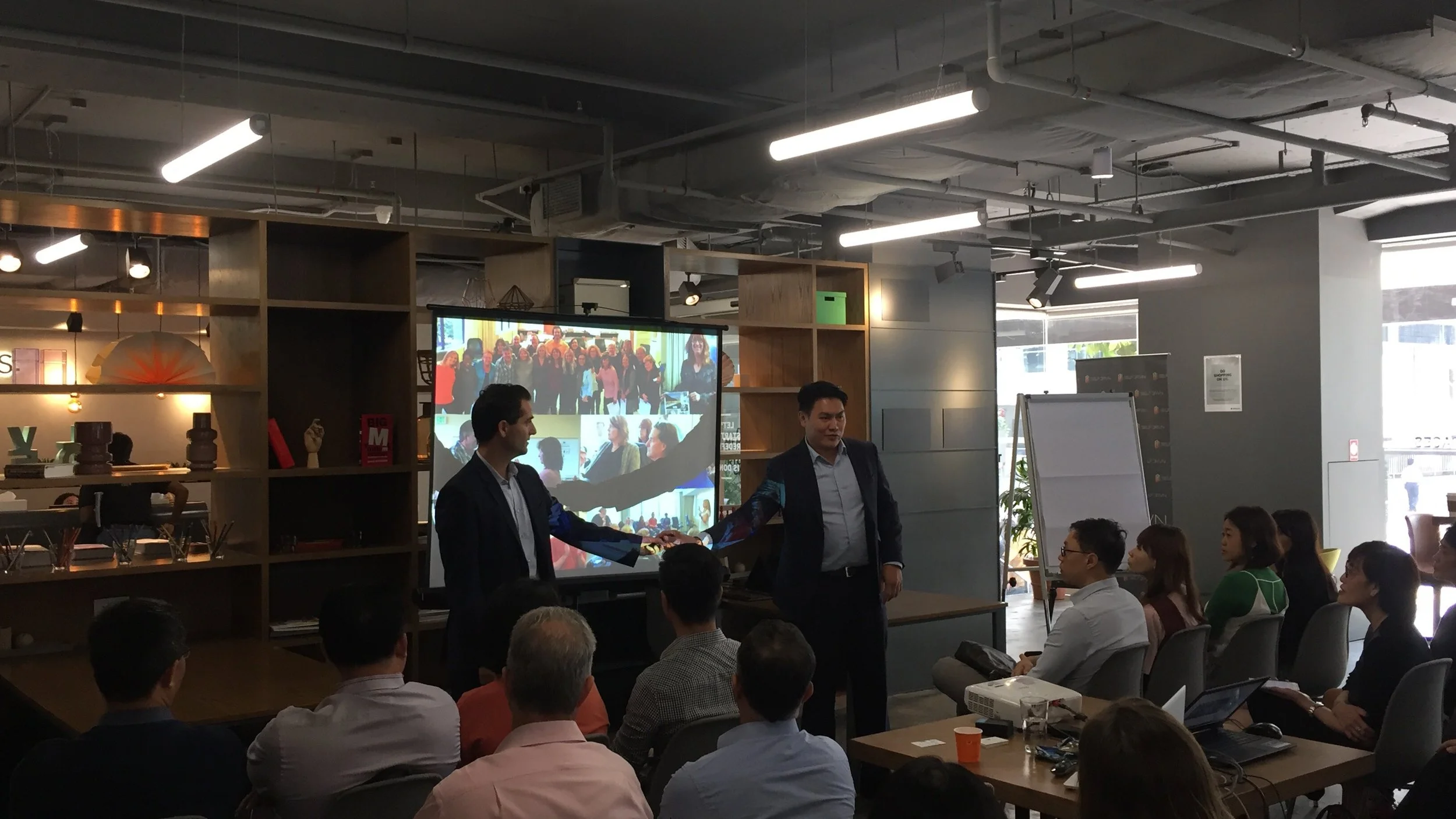Navigating the world of tech transformation can be a tricky one. There are no set definitions on what it means for employees, organisations – and especially for HR, who has been tasked to guide people through this massive shift in the way we work. DecodeHR understands how overwhelming this task can be for leaders driving change in their organisations and shared with HRD that prepping ahead of any transformation project is a must to improve your chances of success.
Read MoreArtificial Intelligence, aka AI, is an increasingly bandied about term as we move into the digital era. But what is AI exactly? Here at DecodeHR, we like to define it as a “medium” to simulate the capability of thinking like humans but with the processing power and speed of machines. With AI, productivity rates have the possibility of surging through the roof as what would normally take hours for a human mind to sieve through can now be processed in seconds.
Read MoreAt the HR Tech Summit, the DecodeHR team met many like-minded individuals, all united in the goal of finding out how technology can be leveraged to strengthen their human capital. We connected with HR tech vendors and experts to hear how technology can be applied effectively to HR. With tech innovations hitting workplaces constantly, there’s never been a better time for us in the HR space to analyse what the future of the workplace holds for us.
Read MoreWhat should you earn? Learn about the Asian market rate and make the most out of 2019.
Looking for a pay raise but don’t know how? Don’t sweat, with the Links 2019 Asia Salary Snapshot, you can easily compare your salary with the market rate and calculate the salary you should be getting.
Read MoreTechnology, globalisation and an increasingly diverse workforce has created an environment where change is the only constant. Businesses are now forced to get ahead of such disruptions or be left behind. Unfortunately, we often see the latter due to how subtle disruptions can creep up. Increasing your organisation’s ability to compete is thus crucial in this day and age – and competency frameworks may just be the edge you need.
Read MoreFor years, talent managers have followed the lead of their marketing counterparts in the race for engagement. Similar to how marketers focused on getting likes and comments on Instagram, many HR professionals have taken to measuring to what extent employees feel a personal bond to their company.
Read MoreWe understand that praise has its benefits in motivating people. However, when done badly they can become a stress or for the people who receive it, choking them up on current tasks and also affecting them down the line. A lot of the time, what many consider praise is really more of a comparison, stacking people against each other.
Read MoreMany leading brands, like Google, Grab and Facebook, have been featured for their successes in injecting a start-up culture to make work a fun and enjoyable place for employees. Others have since tried to emulate their successes by re-designing work spaces and offering benefits like free food, office games, paid outings and chilling areas. In fact, a recent study by Sage revealed that 40% of business owners believe that such benefits are important to employees.
Read MoreWith almost half of the local population thinking about leaving their current jobs within the next year, it is time for us to evaluate how effective we have been in engaging our own employees. After all, if people are spending 50% of their waking time at work, then a department dedicated to ensuring people are happy and productive at work should be taking a prominent place in the organization. The next question would then be: how can your HR team be genuinely human-centric and focus on taking care of real people needs. Or has some become ‘transaction’ processing machines? How can HR get out of this quandary?
Read MoreA collaboration-based performance management framework has the power to positively transform your performance appraisals. By learning the tools of performance management, you will gain a better understanding of your employees and their career aspirations, for a start. The framework sets out the steps to optimise your goals, through helpful techniques and processes such as two-way feedback and constant alignment.
Read MoreAgile way of working, agile organization, Scrum, squads, Holacracy, whatever it’s called in your organization and whatever the shape it takes: working in a new way requires a new leadership style. In a series of articles, I will take you on a journey through the subject of leadership in agile organizations.
Read MoreFrameworks that follow these values and principles are known as "agile techniques". In short, Agile project management is defined as an iterative development methodology that values human communication and feedback, adapting to changes, and producing working results. It is interesting that businesses are now steadily incorporating Agile approaches, but what is noteworthy is the fact that Agile projects have better success then traditional projects (nearly 30% higher success rate according to PWC research).
Read MoreInnovation acts as a catalyst for change, and sometimes with change there can be a discontinuity with the old ways and models. Today, disruption driven by technology, customers and artificial intelligence is rapidly increasing. The Business Times (October 4, 2018) has this to say: “Organisations that are actively embracing digital transformation and new technological opportunities are seeing significant, measurable results and gaining a competitive advantage.” For this reason, it is imperative that leaders are prepared to navigate an ever-changing and unpredictable environment.
Read MoreToday, technology, consumers, and artificial intelligence are responsible for changes to the status quo and can initiate major disruptions. We wanted to ask - how can HR professionals succeed in such an unpredictable environment? How can organisations facilitate innovation and change, and what do leaders need to do to adapt? These topics and more about the future HR landscape were discussed at the HR Leaders Summit 2018 #HRLeadersAsia organised by HRD which took place on 2nd October. Our Managing Director, Evelyn Chow, was the chairperson and reflects on the event:
Read MoreAgile way of working, agile organization, Scrum, squads, Holacracy, whatever it’s called in your organization and whatever the shape it takes: working in a new way requires a new leadership style. In a series of articles, I will take you on a journey through the subject of leadership in agile organizations.
Read MoreWe know that such a transformation would inevitably involve the use of technology, in a bid to be future-ready. These results align with a global trend to initiate transformation through HR digitalisation and technology, and business leaders are becoming more and more aware about its importance for business success. The leadership skills needed in today’s world are expanding from coaching skills, discussed at the workshop, to the ability to leverage technology for business.
Read MoreI dare say I left with a better understanding than when I entered the room. It seems the likes of IBM and EY (presenters for the evening, including MarketAlly) are getting traction with leveraging this technology but yes, as the moderator for the evening, Professor Boh Wai Fong of NBS, NTU, points out - is this a hype? And the other 'hot' question was around what the evolution of blockchain technology could look like in 5 years' time.
Read MoreA couple of weeks ago, DecodeHR hosted two speakers from Berkeley Executive Coaching Institute to speak on the topic of ‘Leader as Coach’. During the event, the audience was polled, and we would like to share some of the results. On the roles of a leader, the audience was asked which roles – advisor, coach, mentor and supporter - are you least comfortable using. Findings of the poll uncovered some interesting results. Most people 37.04% are least comfortable in the role of supporter. DecodeHR has seen first-hand how crucial it is for a leader to be an advocate for their team. So, what does it mean to be a supporter?
Read MoreOrganisations that are fairly progressive in their talent management and employee engagement practices have traditionally focused on leveraging career paths to demonstrate strong career prospects to their employees, particularly the ones with the most promise. This is often used in conjunction with high-potential programs to provide a path to accelerate the advancement of these individuals. Such accelerated programs may include management trainee programs, overseas postings, mentorship programs, and inclusion within high-visibility project teams to work on coveted projects.
Read MoreThe advent of technology has transformed the face of business everywhere, in any area conceivable. One of the key areas in which technology has been harnessed to strengthen a company is the area of customer service. In order for your business to continue to grow in the midst of cutthroat competition, it is imperative that it maintains its competitive edge. One of the ways in which this can be done is to harness technology for better customer service.
Read More



















